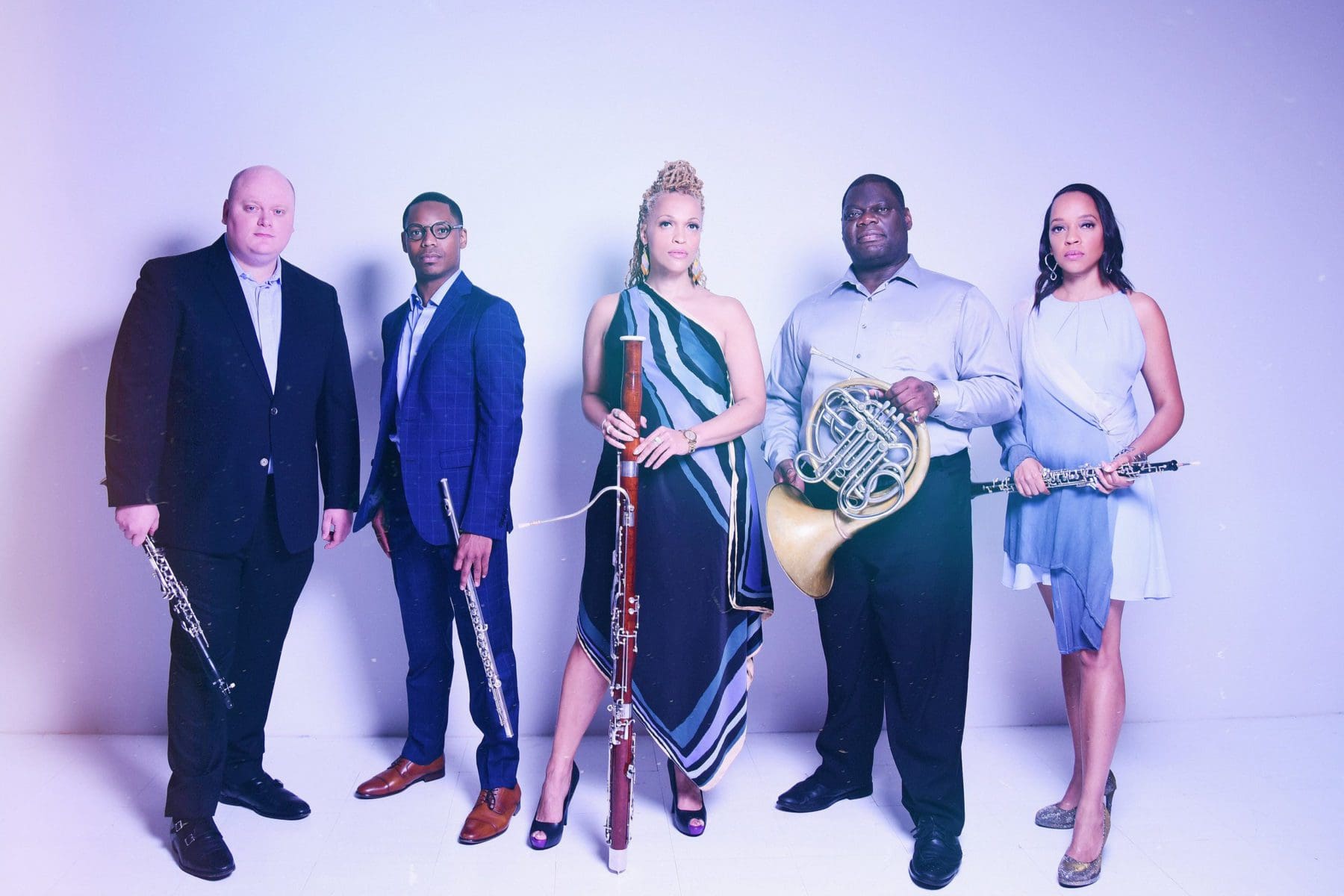

Duke Performances returns to live performance this fall with 16 presentations that welcome audiences back to stages at Duke University and in downtown Durham. Welcome Back Live!
Ahead of Imani Winds’ September 12 performance at Baldwin Auditorium, Michaela Dwyer “sat down” with Monica Ellis to chat about the past year.
We encourage you to check Duke Performances’ blog to read previous Q&As with artists participating in our spring 2020 livestream series and summer 2020 Music in Your Gardens series.
How has this past year of relative isolation evolved your collaborative relationship as a quintet? What would a “typical” Imani Winds rehearsal look like at the height of pandemic-enforced lockdowns, and how has it felt to come together again in-person?
Like most ensembles, we had to really sit down and do a lot of thinking and almost reinvent what it meant to work together as a chamber music group during the pandemic. For the majority of the time, we did not meet in person, as we were all very hunkered down, being as safe as possible and looking out for our families. So really all of our work was remote and we were focusing on business and artistic planning-related things.
We were able to do some remote recording work, and that was a nice way to be able to make music together virtually, but of course we missed playing together immensely. When we were finally able to play together it was really an emotional experience; Imani Winds is such a family, and it felt like coming home. We are so lucky to be able to be back together playing again!
In January of this year, Imani was featured in New York Times coverage spotlighting small music groups and organizations long-attuned to racial equity in their work. In what ways do you feel this post-pandemic — or continued-pandemic — moment is ripe for necessary change in and around the performing arts?
History has shown that change can happen at vastly different rates and speed. Most of the time, what we think is a sudden change has actually been years — if not decades or centuries — in the making.
During the height of the pandemic, most of the country was in a lockdown. The racial injustices that were occurring were not new; they were just being filmed more often and being seen by the world who had nothing but time and the opportunity to see them front and center. One could not look away. It was a perfect storm of epic proportions and showed that now is the time for the potential for real change to occur.
As this “racial reckoning,” as it’s called, continues to unfold, it is nothing but natural that artists — and particularly the world of classical music — see that a reaction must be had. The moment is ripe because there is no other choice in the matter. People expect it, are demanding it, and, most importantly, deserve it. Imani Winds simply hopes to do right by our audiences and supporters and continue to make the type of art that we feel represents our heritages, the world around us, and the people that don’t often get a chance to have their voice heard.
Duke Students & Employees save more!